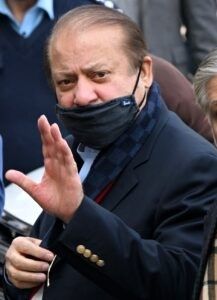PAKISTAN will set up an inquiry commission to investigate accusations by six High Court judges of interference and intimidation by the country’s powerful intelligence agencies in judicial decisions, the law minister said last Thursday (28).
Minister Azam Nazeer Tarar made the announcement at a news conference in Islamabad, saying the decision was taken at a meeting between prime minister Shehbaz Sharif and the chief justice of Pakistan, Qazi Faez Isa.
Their meeting took place after a letter written by six judges of the Islamabad High Court was sent to Isa’s office. It alleged that the country’s top spy agency, the Inter-Services Intelligence (ISI), had been intimidating them to seek favourable decisions in political cases.
The Pakistani army’s media office did not respond to a Reuters’ request for a comment.
“We believe it is imperative to inquire into and determine whether there exists a continuing policy on part of the executive branch of the state, implemented by intelligence operatives who report to the executive branch, to intimidate judges, under threat of coercion or blackmail, to engineer judicial outcomes in politically consequential matters,” said the letter, addressed to the Supreme Judicial Council headed by Justice Isa and seen by Reuters.
It mentioned as an example that the ISI’s operatives intimidated through “friends and relatives” two of the judges who had declared against taking up a political case related to jailed former prime minister Imran Khan last year.
One of the allegations in the letter was that in March 2023, “considerable pressure was brought to bear” on judges “by operatives of the ISI” over a case facing Khan.
“Fearing for their security, they sought additional protection for their homes,” the letter said.
It also alleges a judge’s brother-in-law was abducted by “individuals who claimed to be operatives of the ISI” and “tortured into making false allegations”.

On another occasion, a judge was said to have found secret cameras in his lounge and bedroom.
It said the six judges had brought such cases in their chief’s knowledge and also met the then chief justice of Pakistan to “share their concerns regarding efforts of ISI operatives to affect judicial outcomes”.
They said the interference continued despite their chief assuring them that he had taken up the matter with the ISI head, who gave his word that there would not be any such interference, the judges’ letter said.
An official at Islamabad High Court who asked to remain anonymous confirmed to AFP that the letter was delivered to the Supreme Judicial Council, which oversees the courts.
Khan’s main opponent, the prime minister’s Pakistan Muslim League-Nawaz (PML-N), had also accused the ISI of intimidating the same court’s decisions which led to convictions of his elder brother Nawaz Sharif after his ouster from the prime minister’s office in 2017.
The powerful army plays an oversized role in making and breaking governments in Pakistan.
Khan and elder Sharif both have alleged that they were ousted by the military after they fell out with the generals.
“We want it to be thoroughly probed because we had also been its victim,” Tarar said.
A statement released on Khan’s X account said: “the fact that the judges have been intimidated and coerced into giving judgments based on political expediency raises a lot of questions on the fairness of the courts and their judgments over the last two years”. (Reuters, AFP)
